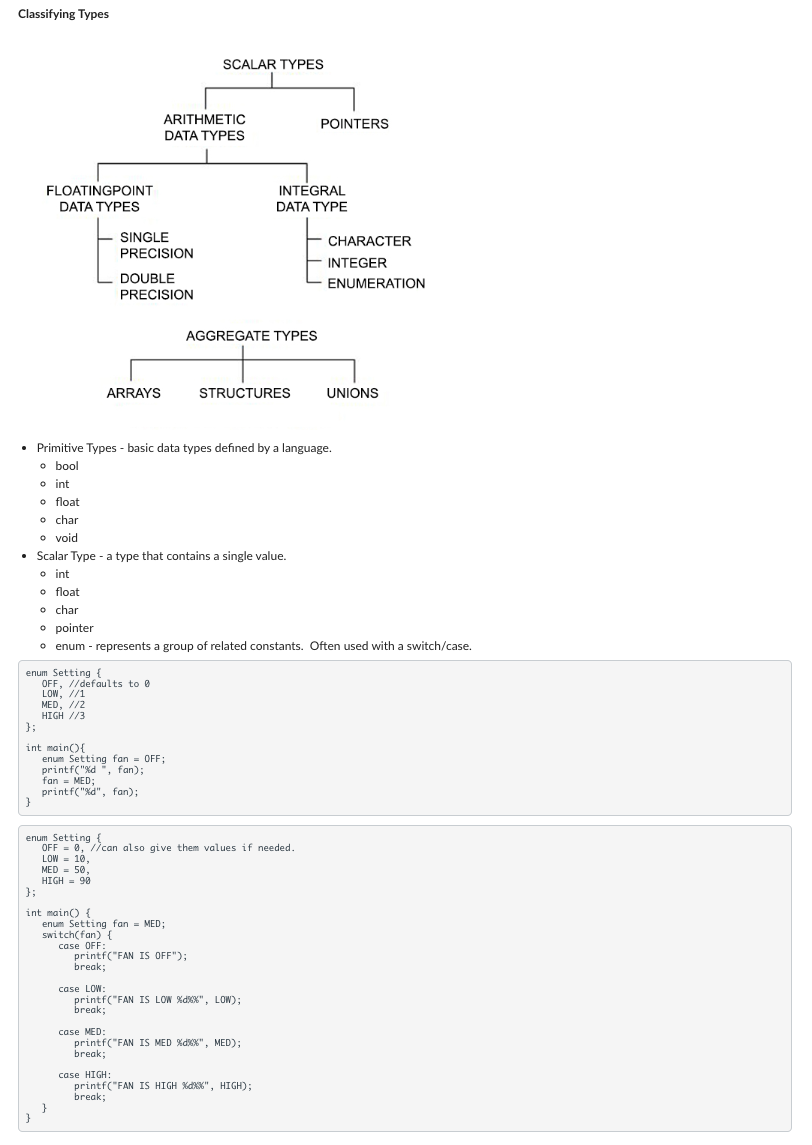Can you explain the classification of data types in programming and provide examples of how to use enumerations with a switch-case?

Understand the Problem
The question is presenting a classification of data types in programming, including scalar types, primitive types, and aggregate types, along with examples of enumerations and switch-case usage in code. It asks for an explanation or further analysis of these concepts as they relate to programming.
Answer
Data types include scalar types like enums, which assign names to constants for use in switch-case statements.
Data types are classified into scalar types, such as enums, and aggregate types. Enums allow defining named constants. They can be used with switch-case statements to perform actions based on enum values, ensuring code clarity and reducing errors from magic numbers.
Answer for screen readers
Data types are classified into scalar types, such as enums, and aggregate types. Enums allow defining named constants. They can be used with switch-case statements to perform actions based on enum values, ensuring code clarity and reducing errors from magic numbers.
More Information
Enums make code more readable and maintainable by replacing numeric constants with names. This reduces the risk of mistakes and improves the maintainability of the code.
Tips
Forgetting to include a break statement in each case of a switch can lead to fall-through issues.
Sources
- Enumeration (or enum) in C - GeeksforGeeks - geeksforgeeks.org
- Switch case with enum in Java - Javatpoint - javatpoint.com
AI-generated content may contain errors. Please verify critical information